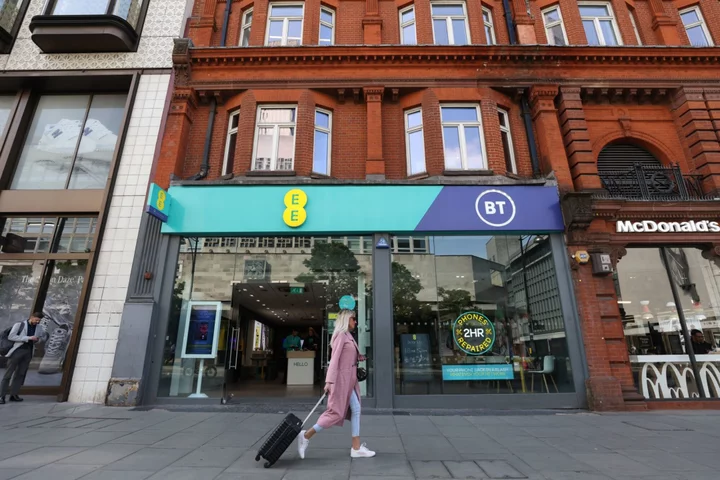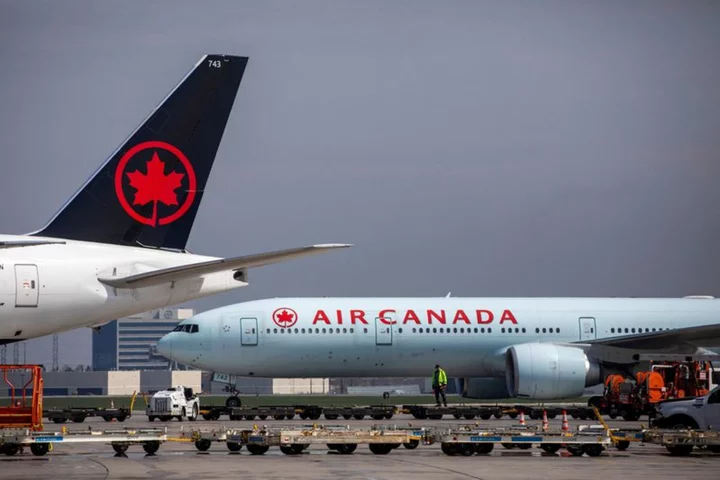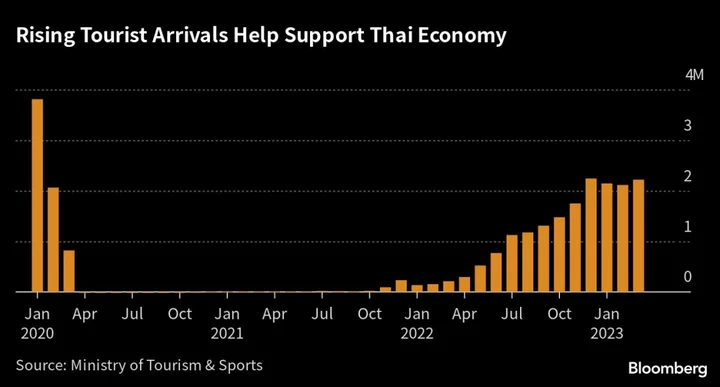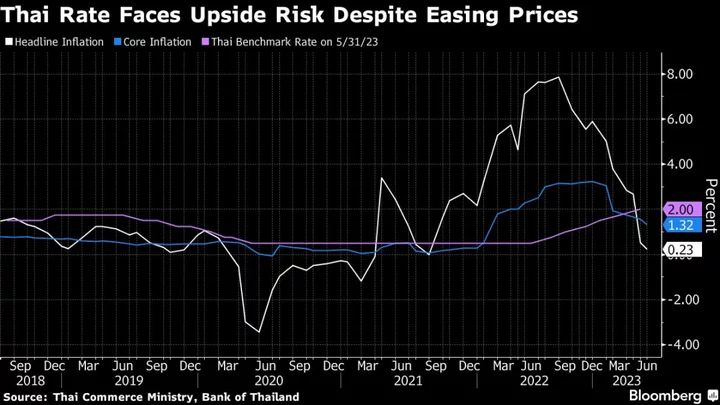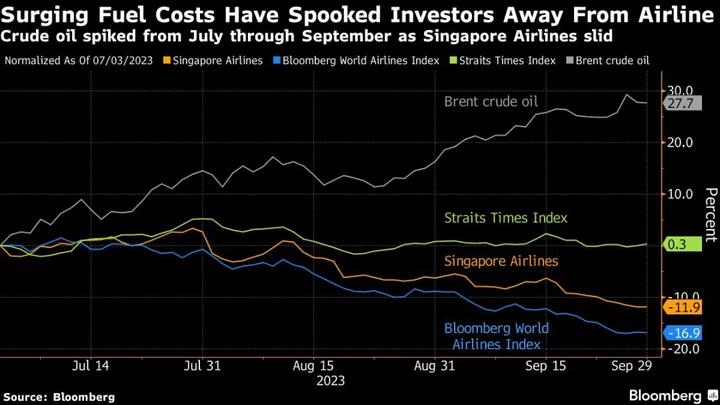BT’s plans to significantly cut their workforce have been long-signaled, with cost-cutting one of the companies key goals in recent years. The scale of them — up to 42% by the end of the 2020s — however, was not yet known. It comes off the back of a similar set of job cuts by Vodafone Plc who, on Tuesday, revealed plans to cut 11,000 jobs over three years.
Here’s the key business news from London this morning:
In The City
BT Group Plc: The telecommunications company plans to cut its labor force, including employees and contractors, by as much as 42% over the next seven years as it works to reduce costs.
- Total workers, including those employed by third parties on BT’s behalf, will drop to between 75,000 and 90,000 by the fiscal year ending in March 2030 from about 130,000 currently
Burberry Group Plc: The British fashion house’s sales jumped as it benefited from the strong appetite of Chinese consumers free to spend again after the country’s post-pandemic economic reopening.
- Revenue accelerated in the last quarter as growth rebounded in China to 13%, although it held its medium-term targets, adding it’s “mindful” of the macroeconomic and geopolitical environment.
EasyJet Plc: The low-cost airline is benefiting from higher ticket prices heading into the peak summer season as air travel continues its post-pandemic rebound.
- Last month, EasyJet raised its earnings outlook for a second time this year, highlighting surging demand for beach vacations
In Westminster
Rishi Sunak announced the “Hiroshima Accord,” £18 billion of new investment by Japanese businesses in the UK, mostly in clean energy, as well as a bilateral “semiconductor partnership.” That’s as he’s in Japan for the G-7 summit.
On the plane over to Japan, Sunak was asked three times whether he stood by the promise to reduce the annual migration from a then 226,000. He declined to repeat the commitment.
In Case You Missed It
If you’ve just bought a home, hoping a surge in value might help grow your wealth, you might be out of luck. The age of huge UK property price increases may be coming to an end as population growth slows and working from home booms, according to a senior economist at the Office for Budget Responsibility.
Overnight, sewage companies apologized for sewage spilling into England’s rivers, pledging to invest an additional £10 billion to cut the overflows.
Looking Ahead
Household confidence is expected to show another improvement in May, with economists predicting a jump in GfK’s consumer confidence index to -27 from -30 tomorrow. That would mark the highest level since Russia’s invasion of Ukraine.
Industrial firm Smiths Group Plc is due to give a business update before the open, with eyes firmly fixed on its organic revenue forecast for the year ending July 31. The company guided for an increase of at least 8% in March, and analysts are increasingly upbeat on the stock they see as a defensive play coming into its own. Smiths carries almost twice as many buy ratings as other recommendations, according to data compiled by Bloomberg.
For a more considered take on the UK's economic and financial news, sign up to Money Distilled with John Stepek.

